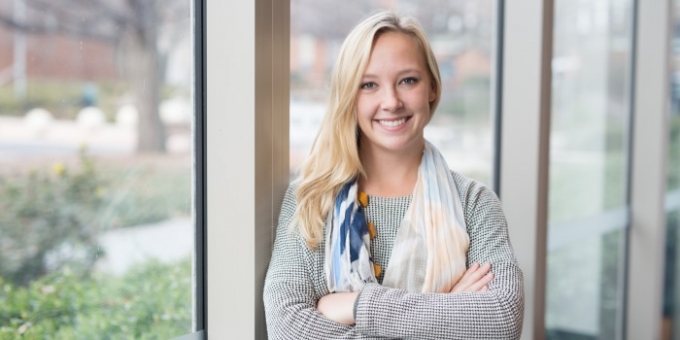“I always envied those people who had one thing they were interested in or one thing they were good at, because the path was very clear for them.”
The envy of Emily Campbell, 22, is an envy shared by many, particularly students who are unable to choose between passions and pull the trigger on a specific career path.
So, Emily enrolled in a double degree at the Australian National University (ANU), embarking on a Bachelor of Engineering, majoring in Mechanical and Materials Engineering, and a Bachelor of Arts, majoring in Spanish and minoring in Philosophy.
“Even when I was in college, I was trying to decide between a double major in Maths and a double major in English, which I don’t think is a normal problem to have,” she laughed.
“I’ve always been pulled both ways, so the option of being able to do two [degrees] really appealed to me.”
Though some might not immediately see the career Emily’s hoping to patch together with her degrees (Philosophical Spanish Engineer?), she said she’s been presented with the perfect combination after four years of study: Humanitarian Engineering.
It’s a role that will allow her to head overseas and use her engineering skills to better people’s lives.
“Because of my Arts [degree], I have much better writing skills, which people always underestimate the need for in engineering, better communication skills and, obviously, learning a language is a useful skill in itself,” she said.
The study of Spanish, meanwhile, gives her the “cultural knowledge” to tackle another nation’s issues. Ultimately, she believes, her Engineering degree gives her the scientific know-how for the gig and the Arts degree is giving her a “life education”.
Emily said she sometimes encounters those who are skeptical of her subject selection, but is heartened by industry professionals who say she’s making herself appealing to employers.
Thankfully, her family was encouraging from the get-go.
“My grandpa was a doctor and my mum is a lawyer and my auntie did an arts degree when she was at uni,” she recalled.
“My grandpa always said that my auntie was the only one who got an actual education.”
The double degree has already “paid off”, as Emily put it, even though she’s still a year away from graduating, thanks to a tantalising overseas placement.
“This summer coming up, I’m going to Peru for three months, to work for an organisation called WindAid; they set up wind farms in rural Peru,” she explained.
“It’s kind of exactly what I was thinking when I chose Spanish; it’s led to this and hopefully in the future it will lead to other things.”
But that’s if Emily’s passion for accumulating knowledge ever subsides. Even as we chat, she muses about a third potential degree.
“I’ve been really surprised about how important economics and business is to humanitarian engineering,” she said.
“So much of what happens in developing countries is only viable because it’s financially viable or someone has set up a business around it, and so often the hurdles are surrounding that thing.”
For someone who could never see a path ahead, Emily is about to become the most specifically-trained humanitarian engineer in all of Peru.
This article was originally published on Student Edge.

